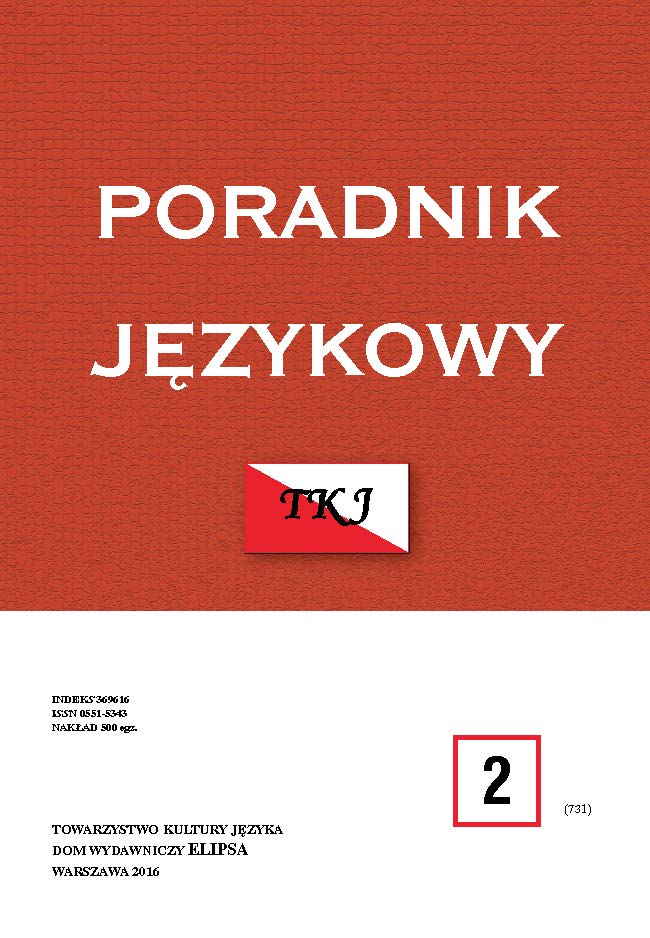O UNIFIKACJI SŁOWNICTWA MNIEJSZOŚCI NARODOWYCH W ZSRR NA WYBRANYCH PRZYKŁADACH Z RADZIECKICH ODMIAN POLSZCZYZNY I NIEMCZYZNY (OKRES MIĘDZYWOJENNY)
On the unification of the lexis used by national minorities in the USSR on selected examples from Soviet variants of Polish and German (the interwar period)
Author(s): Jolanta Mędelska, Maria Jankowiak-RutkowskaSubject(s): Language and Literature Studies, Theoretical Linguistics, Lexis
Published by: Dom Wydawniczy ELIPSA
Keywords: national minorities in the USSR; lexis; Soviet variants
Summary/Abstract: The authors briefl y present the history of two largest national minorities in the USSR: Poles and Germans. They outline their faith in tsarist Russia and in the Soviet Union. Their common history and everyday life resulted in the development of certain shared characteristics in the languages used by Soviet national minorities, in particular in their lexis, which is the authors’ focus. The paper points to circa 30 lexical Russicisms occurring in local variants of Polish and German. Some of them, e.g. ambar and Ambar, bałanda and Balanda, mużyk and Muschik, were used even as early as in tsarist Russia, others occurred after the revolution, in the 1920s and 1930s. New borrowings, common to Polish and German, are mainly Sovietisms (e.g. basmacz and Basmatsch, komsorg and Komsorg, smyczka and Smitschka) and lexis, the frequency of which has significantly increased in the new socio-political conditions (e.g. batrak and Batrak, putiowka and Putjowka), including orientalisms taken over from Russian (e.g. kiszłak and Kischlak). The paper presents mainly lexical units analogous to Soviet Polish and German, that is formal and semantic calques (see examples above) as well as derivational calques and semi-calques (e.g. Ger. Cheftum or Dorfsowjet), semantic calques (e.g. Pol. dziesiętnik) and derivatives formed based on a Russian root (e.g. Pol. batraczka and Ger. Batrakin).
Journal: Poradnik Językowy
- Issue Year: 2016
- Issue No: 02
- Page Range: 79-93
- Page Count: 15
- Language: Polish
- Content File-PDF

